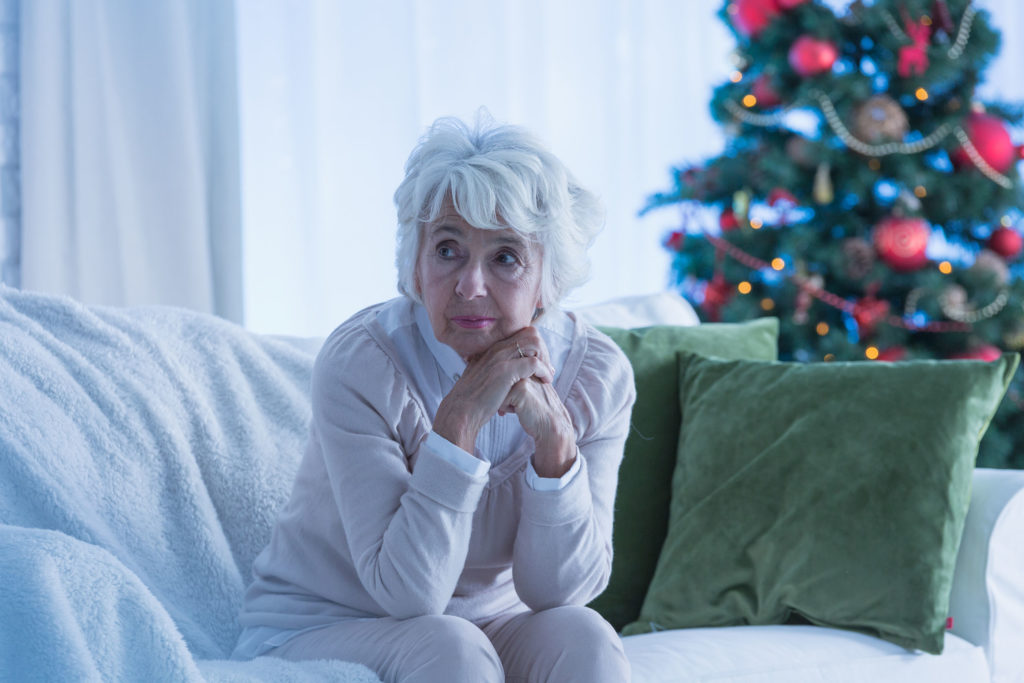As the weather grows colder and winter holidays approach, not everyone feels the joy of the season. In fact, many seniors experience a decrease in their mood, energy, and outlook due to changing temperatures and daylight hours. This condition is called Seasonal Affective Disorder (SAD), or seasonal depression, and it’s a serious concern for many seniors. Unfortunately, not everyone has the ability to migrate closer to the equator each winter, so we’ll discuss some basic treatments for seasonal depression in seniors here!

After the festivities of your favorite winter holidays conclude, people of all ages can find themselves in a slump. It’s darker, colder, and spring is still a few months off, so it can be difficult to stay positive. Still, after a week or two, it’s usually the case that things settle and individuals adjust to the full swing of winter. However, when feelings of sadness persist for several weeks with no sign of improvement, it’s possible that someone is experiencing seasonal depression.
For seniors, the risks of SAD can be even more severe considering that some of the main symptoms include:
- Loss of Energy
- Changes in appetite
- Changes in sleeping habits
- Irritability
- Loss of interest in socializing
Before exploring treatments for seasonal depression in seniors, it’s important to recognize the differences from general depression. According to the National Institutes of Health, SAD is most prevalent in women and individuals who live further from the equator. Most notably, seasonal depression is just as it sounds and only occurs during certain times of the year. Because the amount of sunlight directly affects circadian rhythms and the production of mood-regulating hormones, there are specific ways to address this condition.
If you’re looking for senior housing options click here!
Common Treatments for Seasonal Depression in Seniors
Consider Light Boxes
In many cases, seniors who suffer from SAD are those with limited mobility and who live in areas prone to ice and snow. Since natural light is so integral to resisting seasonal depression, a popular treatment is the use of “light boxes.” Essentially, these are devices that emit a spectrum of light, similar to natural sunlight, to help regulate the proper hormones and neurotransmitters. It’s well documented that having an imbalance of melatonin, serotonin, and epinephrine can worsen symptoms of depression.
These light boxes usually require 30-45 minutes of exposure in the morning to compensate for the lack of sunlight. There are a variety of different products out there and it’s best to consult a doctor before beginning treatment for seasonal depression in seniors.

Get Enough Vitamin D!
Research shows that another main contributing factor to SAD is a deficiency of vitamin D. This nutrient is one of the few linked to bone and heart health, cancer and diabetes prevention, and an increased immune function. Seniors who don’t get enough vitamin D are also prone to developing osteoporosis, so there are many reasons to include this in your diet!
Usually, the body produces vitamin D with a healthy amount of sunlight. Otherwise, seniors can obtain this nutrient through foods such as:
- Egg yolks
- Cheeses
- Salmon
- Beef liver
- Portabella mushrooms
- Almonds
- Fortified Juices and Milk
Exercise for a Good Mood
In addition to using light boxes and getting enough vitamin D, these treatments for seasonal depression in seniors are maximized with physical activity. Getting daily exercise, even in very basic forms like walking, strength training, swim aerobics, or even yoga will get your blood flowing to distribute those healthy hormones and nutrients! Taking medication is another option, however, there is the risk of dependency once the season changes again. In any case, the above-mentioned treatments for seasonal depression in seniors should always be supervised by doctors. Never add supplements to your regimen without first consulting professionals, but know there are solutions!
Have you beaten seasonal depression? What methods work for you? Let us know in the comments below and thanks for reading!





